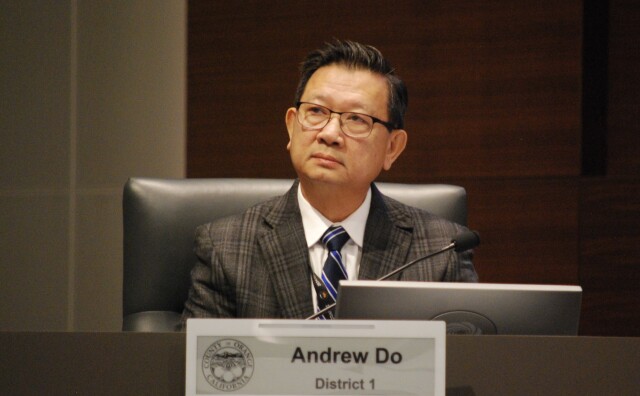The Los Angeles City Council earlier this month quietly changed its procedures regarding public comment at council meetings, limiting who is allowed to speak on agenda items before the panel votes.
The move, designed to make meetings more efficient, has drawn criticism from the city controller and rankled activists who called it “anti-democratic.”
The change comes as the council wrestles with major issues — from homelessness and renter protections to government reform — that have drawn at times hundreds of people to the council chambers. Some meetings have turned raucous, with people being removed for screaming and interrupting the proceedings.
“This change makes it harder for the people of Los Angeles to have their voices heard by their government,” City Controller Kenneth Mejia wrote last week on X, formerly known as Twitter.
-
It's gonna be Yankees v the Boys in Blue
-
Nonprofit's launching fundraiser to keep it afloat
-
USC study documents what residents want from trees
“For people and community groups without influence and connections to get private meetings, general public comment is one of the few tools they have to speak directly to their elected representatives,” he added. “We urge City Council to reconsider this change to public comment.”
How the change will work
Under the previous rules, if someone was unable to attend a committee meeting on a particular topic, they could speak on it during what’s known as general public comment at a full City Council meeting, where presumably all of the elected members would be present.
This was particularly important because the council could take public comment over the telephone in meetings. That doesn’t happen at the committee level.
Under the new procedures, general public comment has been moved to the end of the meetings — after the council has voted on all of the agenda items.
The decision to move general public comment was made earlier this month by council President Paul Krekorian, who, as the presiding officer of the City Council, has the authority to establish speaking procedures.
His spokesperson, Hugh Esten, noted that people can still speak on an agenda item before the council votes — if a committee had not previously conducted a public hearing on that item.
Many public hearings are conducted in committee.
Esten said the idea was to “maximize” the amount of time for comment on items for which there had been no committee public hearing.
“There were a lot of complaints from people who didn’t want to listen to general public comment,” Esten said. “I don’t think any approach to this satisfies everyone.”
Efficiency or ‘afterthought’?
The new procedure appears to run counter to the published rules of the City Council, as amended in 2019. The rule states general public comment “shall be taken up at or near the beginning of each regular meeting.”
Esten was not immediately available late Monday to comment on the issue.
Estuardo Mazariegos with the Alliance of Californians for Community Empowerment, which fights for economic, racial and social justice, and other activists have often used general public comment at City Council meetings to speak out on issues facing the city or to address the council when activists were unable to show up to a committee meeting.
“It's disrespectful,” he said of the change in procedure.
The old rules also allowed community groups to organize a larger turnout to City Council meetings than to committee meetings to exert pressure on the full council, he said.
“This is what we have to counteract big, organized money — our voices and our people power,” Mazariegos said. “To put us at the end is like an afterthought.”
He added that the new rules give council members more time to “grandstand” and place community members in “the back of the bus.”
Esten said people will still be able to comment, only at the end of a meeting after the council has voted.
”It is true that there are circumstances in which somebody might want to comment on something and they might not get the opportunity” before the vote, he said.
L.A. City Council meetings happen Tuesdays, Wednesdays and Fridays at 10 a.m.







